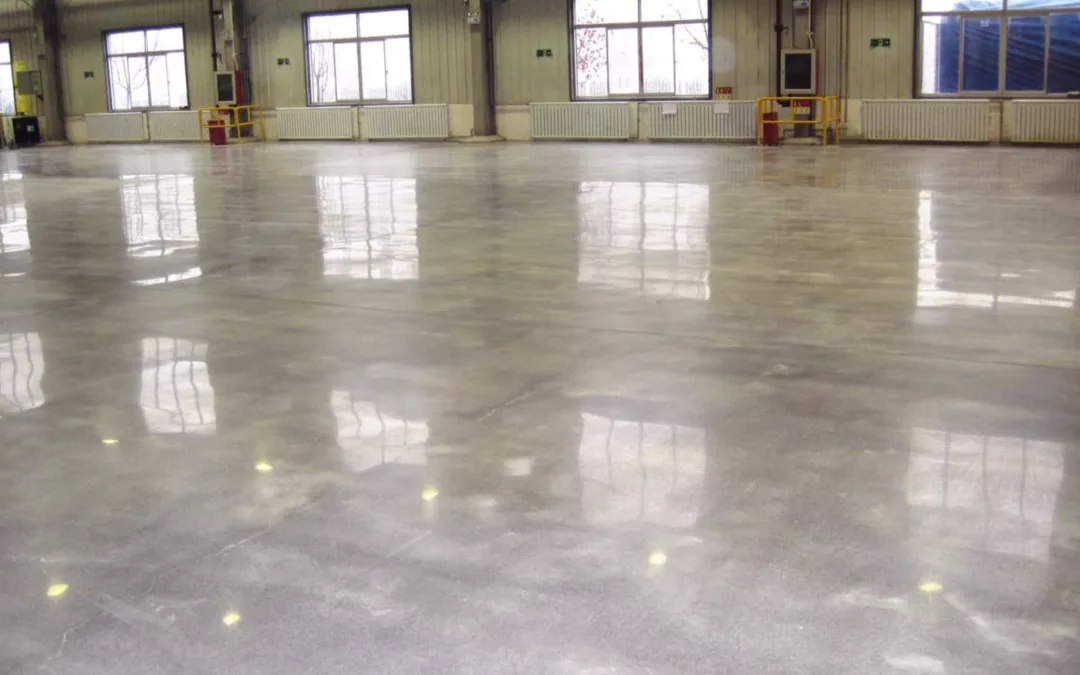How do concrete densifiers work?
There are different kinds of concrete densifier sodium, potassium, lithium & colloidal silicates. They react with CaOH to form a gel. The gel formed by applying a Sodium, Potassium, Lithium or Colloidal Silicate will improve the concrete slab in several ways.
The pros and cons of water
A concrete is made with an ample amount of water which is not too less or more. Mixing concrete with exact amount of water. But If some water evaporates then : –
- The concrete leavers some air pockets which create weaker concrete.
- Some cement is left too little water then it will be fewer bonds, weaker concrete, etc
- The concrete will also cause shrinkage, leading to spider cracks when water is evaporated.
- Evaporation increases will lead the surface of the concrete particularly weak. Which means that the surface will shrink and there will be cracks. The concrete will sound hallow if you knock on it.
- Evaporation could damage floor finish and lifting of floors.
Importance of Concrete Densifier
Concrete densifier is important for several reasons in the construction and maintenance of concrete structures. It plays a significant role in enhancing the durability, strength, and longevity of concrete surfaces. Here are some key reasons why concrete densifier is important:
- Increased Strength: Concrete densifiers penetrate the concrete surface and react with calcium hydroxide, a byproduct of the cement hydration process, to form calcium silicate hydrate (CSH) gel. This gel fills in the microscopic pores and voids within the concrete matrix, increasing its overall strength and density.
- Surface Hardening: Densifiers chemically react with the free lime in concrete, making the surface harder and more resistant to wear and abrasion. This is especially important in high-traffic areas or industrial settings where concrete floors are subjected to heavy loads and foot traffic.
- Dust Reduction: Densified concrete is less prone to dusting. The reduction in dust is not only aesthetically pleasing but also improves indoor air quality and reduces the need for ongoing maintenance and cleaning.
- Improved Resistance to Stains and Chemicals: Densifiers create a more impermeable surface, reducing the ability of liquids and chemicals to penetrate and stain the concrete. This is particularly important in areas where spills are common, such as garages, workshops, or commercial kitchens.
- Enhanced Durability: By increasing the density and reducing porosity, concrete densifiers help protect the concrete from freeze-thaw cycles, moisture intrusion, and other environmental factors that can lead to cracking and deterioration.
- Reduced Maintenance Costs: Densified concrete surfaces require less maintenance over time compared to untreated concrete. They are easier to clean and are less likely to develop surface defects or require frequent repairs.
- Improved Aesthetics: Densifiers can enhance the appearance of concrete by increasing its reflectivity, creating a glossy finish, and bringing out the natural beauty of the concrete. This is why they are often used in decorative concrete applications.
- Sustainability: Densifying existing concrete surfaces can be a sustainable option because it extends the life of the concrete, reducing the need for replacement and the associated environmental impact of manufacturing and transporting new concrete.
- Cost-Effective: While there is an upfront cost associated with applying concrete densifiers, the long-term benefits in terms of reduced maintenance and extended lifespan often outweigh the initial investment.
Conclusion concrete densifiers are important because they improve the strength, durability, and aesthetics of concrete surfaces, reduce maintenance costs, and contribute to the overall longevity of concrete structures. They are widely used in both industrial and decorative concrete applications to enhance performance and appearance. For more information contact Jemkon.

